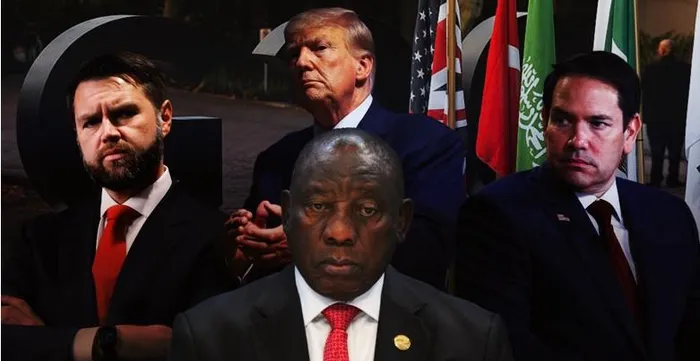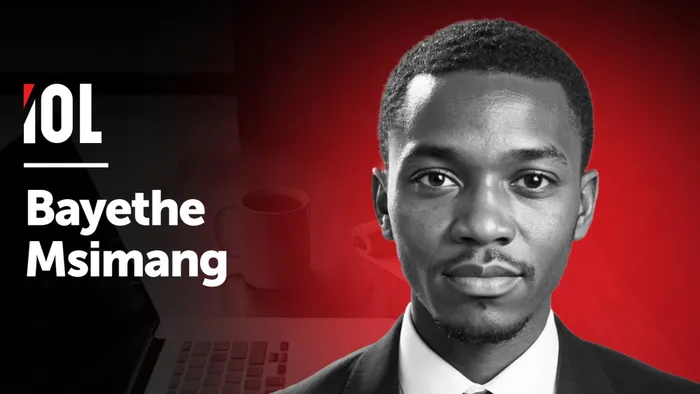
A dramatic incident unfolded at the 23rd Nelson Mandela Lecture when UN Special Rapporteur Francesca Albanese was publicly served legal papers by pro-Israel Christian organisations, shortly after calling for a boycott and arms embargo on Israel.
Image: Supplied
The service of legal documents to Francesca Albanese, the UN Special Rapporteur, following the 23rd Annual Nelson Mandela Lecture, during which she called for a complete boycott and arms embargo on Israel, was a strategically timed event. The choice to conduct this act in a public forum in Johannesburg, during an academic gathering, ensured high visibility. This method transformed a legal procedure into a public statement, immediately pulling Albanese's lecture into an ongoing geopolitical dispute.
This incident, initiated by the American organization the Christian Friends of Israeli Communities, and Christians for Israel, raises analytical questions about the actors involved, their motivations for this specific timing and location, and the broader implications for freedom of expression on contentious international issues in South Africa.
Francesca Albanese's influence stems from her substantive, research-driven approach to international law. Her reports, including the 2024 analysis on Israel and Palestine, do not hide behind understatement and are notable for their legal precision and reliance on documented facts, which makes them difficult to dismiss.
Before the mandate, she spent years in the thicket of migration and displacement policy, where treaties meet border posts and real lives.
This incident occurs within a wider context of deteriorating US-South Africa relations. Analytically, a pattern of pressure is observable. Under the Trump administration, the imposition of tariffs on key South African export sectors, such as automotive, metals, and agriculture, effectively eroded the benefits of previous trade preferences.
Concurrently, the uncertainty surrounding the future of the African Growth and Opportunity Act (AGOA) has created instability for businesses that relied on its framework. This economic pressure has been accompanied by political discourse that critiques South African political parties like the EFF and, more broadly, the country's independent foreign policy stance, particularly its decision to bring a case against Israel before the International Court of Justice.
The convergence of these economic and political tools suggests a coordinated strategy to influence South Africa's diplomatic choices.
The public reaction to the Sandton incident was swift and organized. Digital platforms facilitated the rapid dissemination of information and the coordination of a response. This manifested as widespread public support for Albanese by popular African bloggers on X and Facebook and calls for intellectual solidarity.
People urged delegations to keep their distance from the U.S. presence at G20-related gatherings, arguing that respect for the law means backing those who apply it, even when it cuts across a powerful ally. The underlying consensus driving this reaction is a defense of the principle that international law should be applied consistently, without succumbing to pressure from powerful states.
In summary, the available evidence indicates that the United States is employing a multi-faceted strategy to influence South African foreign policy. This strategy integrates economic instruments—such as tariffs and trade uncertainty—with diplomatic and public political pressure. The objective appears to be to compel South Africa to alter its independent stance, particularly regarding its case against Israel at the ICJ, and to align more closely with Western geopolitical interests.
The likely continuation of this approach will involve sustained economic pressure framed as policy, coupled with narratives that equate sovereignty with economic risk. In the run-up to the G20 summit, the fundamental challenge for South Africa is to navigate this pressure while continuing to assert its sovereign prerogatives: to maintain diverse trade partnerships, engage in open diplomatic discourse, and uphold its right to pursue legal avenues in international courts. Even if this is due to the refusal of the United States to attend the G20, South Africa must show that it has the privilege not to make decisions under pressure.

Bayethe Msimang believes the incident reflects broader U.S.-aligned pressure on South Africa over its independent stance and case against Israel at the ICJ.
Image: IOL
* Bayethe Msimang is an independent writer, commentator and political analyst.
** The views expressed do not necessarily reflect the views of IOL or Independent Media.
Related Topics: